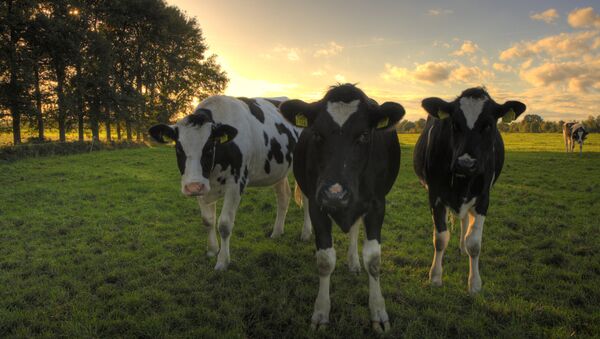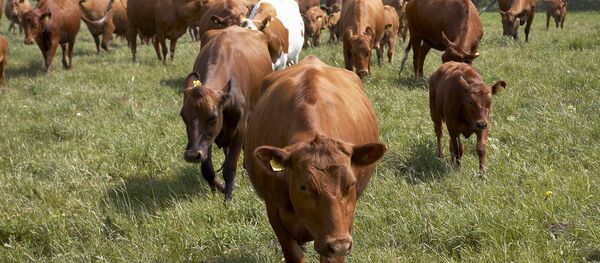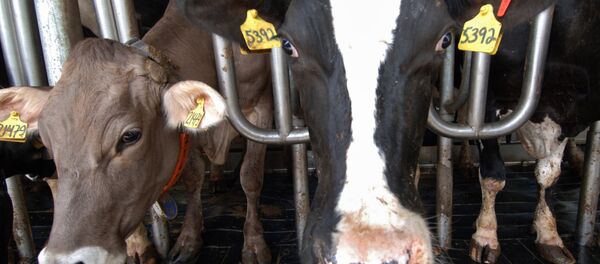The new grass is easier for cows to digest and is therefore expected to improve the amount of the greenhouse gases cows release into the air though burping. Accordingly, Denmark's Environment and Food Ministry has allocated 13.5 million kroner (over $2 million) for further research of the bovine metabolism.
"We know that cattle are one of agriculture's main culprits when it comes to releasing climate gases, so it's important that we research how we can reduce the cows' emissions," Danish Environment and Food Minister Esben Lund Larsen told Danish Radio.
What do cow burps have to do with climate change? Apparently, a lot: http://t.co/4MubF3G5Ql
— National Geographic (@NatGeo) August 4, 2015
According to Larsen, the new grass is also expected to boost Denmark's milk production. Additionally, state-of-the-art DNA technology has been implemented and expectations are very high. The eco-friendly gas-free grass is expected to be ready in about seven to eight years.
Earlier this year, Aarhus University reportedly investigated whether the use of oregano in cow feed can reduce cow methane emissions by 25 percent in a joint DKK 6mln project ($900,000) with the Danish Organic Association and a number of organic food producers.
According to Danish Radio, cows' burps are actually much more dangerous to the environment than bovine flatulence, another bodily function which is difficult to control, previously believed to adversely affect the global emission of greenhouse gases.
Yep, it's cow burps, not farts,that are the real problem for global warming. And scientists are helping clean them up!http://t.co/ZmHE9EBUEi
— Dr Justine (@LamnidaeBlue) August 4, 2015





